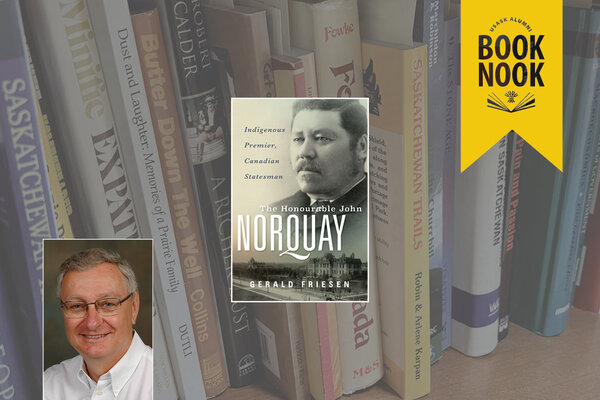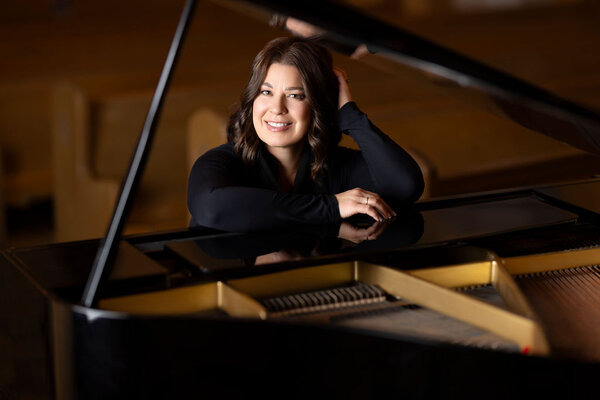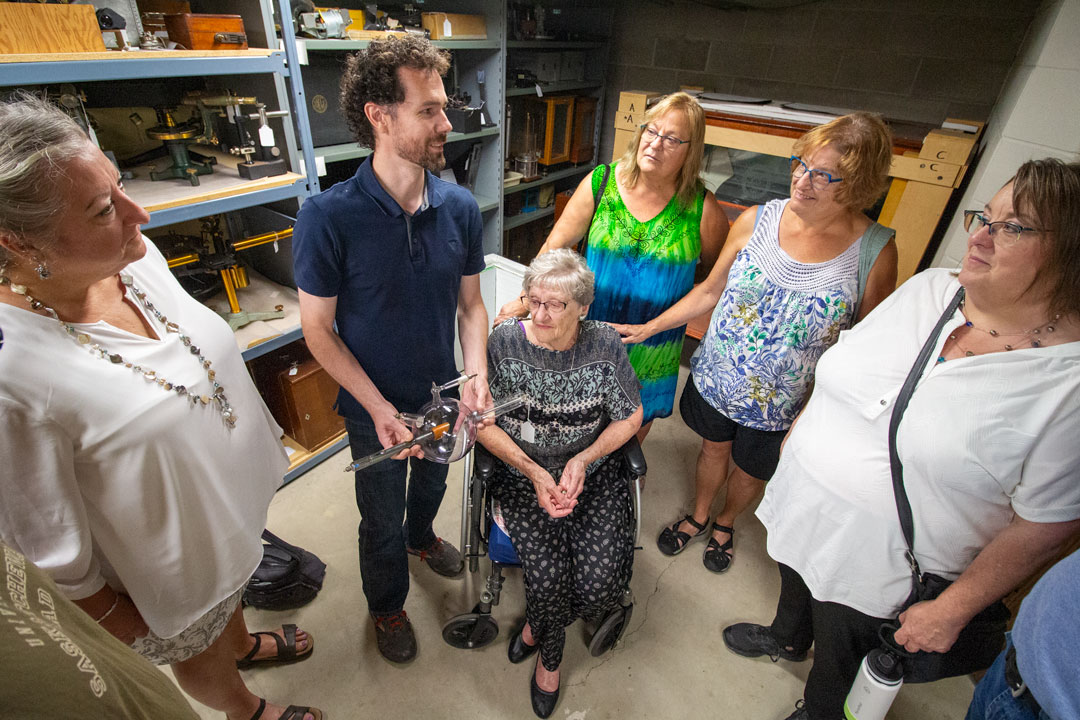
How one of the first X-ray tubes came to USask from a family farm
For more than 50 years, no one was sure what it was
By Chris Putnam
A century-old piece of scientific history is now with the University of Saskatchewan (USask) after sitting for decades on a shelf in a farmhouse kitchen.
The antique X-ray tube was kept as a curiosity by Kenneth and Anne Plummer on their farm near Saskatoon since at least the early 1970s. No one in the family knew what it was or remembered exactly how it had gotten there.
“I always thought it was something from a bathroom or for winemaking,” said Anne Plummer. “I would never have thought of X-rays.”
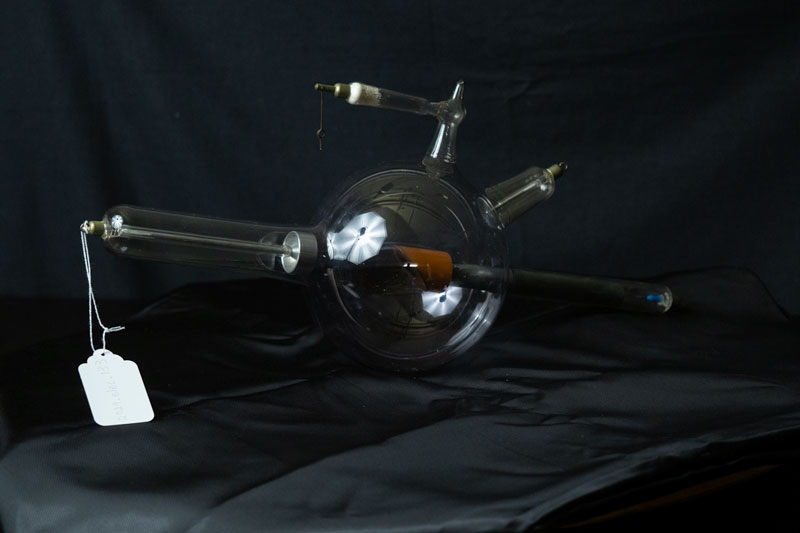
The family’s best guess is that the tube arrived in a box of assorted items purchased by Kenneth—who passed away in 2013—or Anne at an auction in the 1960s.
A 50-cm-long glass orb full of electrodes and strange protrusions, the object was an occasional topic of conversation in the Plummer house but was mostly left alone on its spot above the kitchen cupboards.
“For the majority of the 50 or so years it sat there, it really was out of sight, out of mind. It only ever got talked about when it was time to clean on top of the cupboards,” said Michele Kralkay, daughter of Kenneth and Anne Plummer.
When Anne moved off the farm in 2021, the family began cleaning out the house. Kralkay decided it was time the mystery was solved.
A few internet searches for similar objects led her to read about electrical discharge tubes and eventually antique X-ray tubes. Soon she found an exact match.
The device is a hand-blown Crookes X-ray tube, one of the earliest tools for producing X-rays. Dr. Mark Wurtz (PhD), an instructional assistant in the USask Department of Physics and Engineering Physics, believes it dates from around 1905–20 and was likely used for medical X-rays. The item is rare and in good condition.
Kralkay brought her findings about the tube to her mother.
“I said, ‘So what do we want to do with it?’ Mom said, ‘The university has to have it.’”
The family approached the Department of Physics and Engineering Physics, which is home to an extensive collection of antique scientific artifacts. The department was thrilled to accept the family’s donation.
The tube is similar to one installed in Western Canada’s first X-ray machine, which is stored in the basement of the USask Physics Building. The department also owns a few X-ray tubes of a slightly later design, so the Plummer family’s donation is a perfect fit for the collection.
640jpg
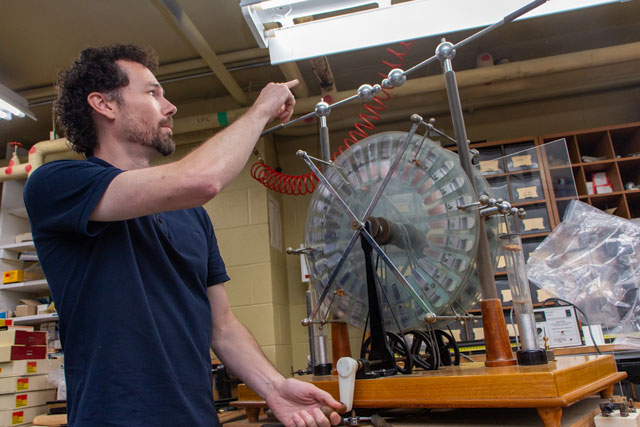
In April 2024, Wurtz visited Anne at St. Ann’s Home in Saskatoon, where the 92-year-old retired pharmacy assistant now lives. Wurtz gave a presentation to the residents there about the history of X-rays and Anne shared the story of her family’s X-ray tube.
The item is now on campus, where it will be used as a teaching tool for hundreds of undergraduate physics students each year.
In late August, Anne, Kralkay and other members of their family—Sharon Geall, Bev Suiker, Val Plummer and Kirk Kralkay—came to campus to see the X-ray tube in its new home in the Physics Artifacts Collection.
It was an emotional visit for Anne, who said she values education and is happy to see her donation being put to good use.
“I just wanted people to know about it. People learn here. They teach,” she said.
Wurtz said the department greatly appreciates the Plummer family’s donation.
“I thank them for the care they took of this X-ray tube for the more than 50 years they had it, and I thank them for entrusting us with it. It will be used to further the educational mission of the university and our efforts for historical preservation.”
Together we will support and inspire students to succeed. We invite you to join by supporting current and future students' needs at USask.
